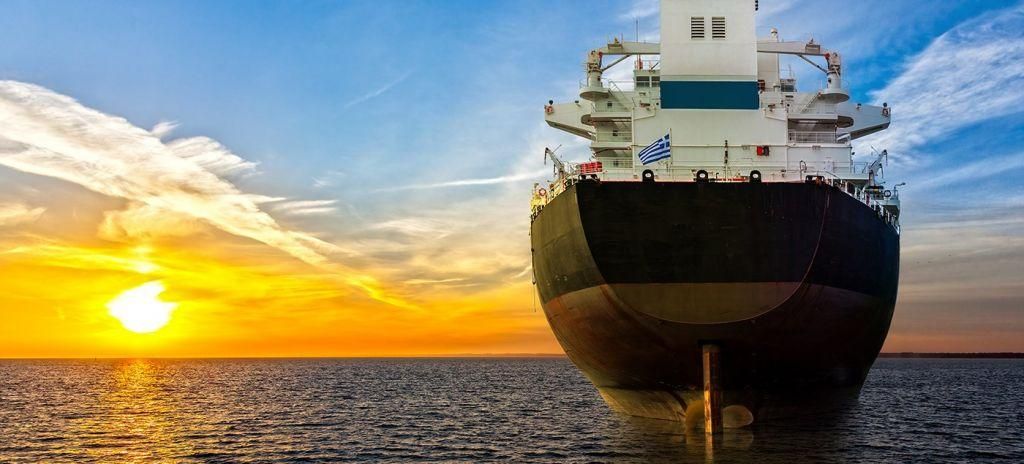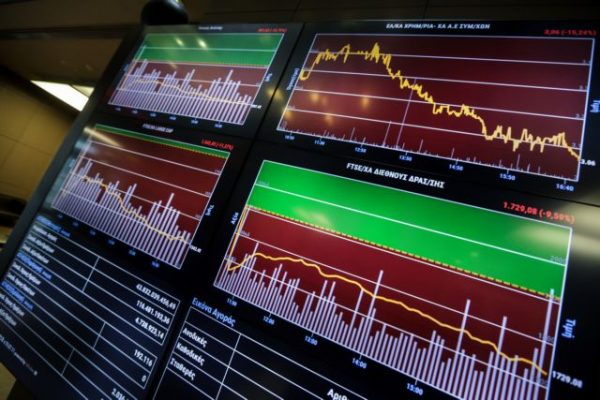
Stunning sizes, which according to them no other business sector in our country has to present compared to the international competition. These are the achievements that make many characterize the world first of the Greek navy as a “maritime miracle”.
Greek shipping has been and will be for many years still the largest in the world.
According to the annual report of the Hellenic Shipowners’ Association, with a fleet of 4,901 ships, Greek shipowners control 19.42% of world tonnage in deadweight (dwt) tons. In 2020, the Greek-owned fleet increased by more than 4%, reaching approximately 364 million tons of dwt.
Greek shipping is the backbone of European shipping: Greek shipowners own 58% of the EU tonnage and continue to increase their share in the European Union (EU) controlled fleet. More than a third of the Greek-owned fleet, or 1,706 ships, carry the flag of an EU Member State.
At the same time, however, Greek shipping is a cornerstone of world maritime trade, as Greek shipowners control:
• 30.25% of the global tanker fleet,
• 14.64% of the world fleet transporting chemicals and petroleum products,
• 15.58% of the global LPG fleet (LNG / LPG),
• 20.04% of the global bulk dry cargo fleet,
• 9.53% of the global container fleet.
-Greek shipowners continue to invest in newly built ships: In 2020, Greek eligible shipbuilding orders amounted to 104 ships (over 1,000 gt) or 14.36 million tons of dwt, which represent 10.99% of world tonnage. Greek shipowners continue to invest in new and energy efficient ships, with the average age of the Greek-owned fleet (9.54 years) being lower than the average age of the global fleet (9.87 years) 6.
-The Greek fleet is one of the safest in the world: Greece fails to comply with the International Maritime Organization (IMO) STCW (Standards of Training, Certification and Watchkeeping for Seafarers) White List and the Paris Memorandum of Understanding (Paris MoU) White List ) and the Tokyo Memorandum of Understanding (Tokyo MoU), while the Greek fleet is also one of the safest in the world, with 0.44% of the Greek merchant fleet (based on the number of ships) and 0.50% (based on capacity) to be involved in minor maritime accidents.
From 1.7.2021 Greece is included in the List of Maritime Administrations of the QUALSHIP 21 Initiative of the American Coast Guard (USCG). Greece maintains one of the top ship registers in the world: The Greek register numbers 685 ships (over 1,000 gt), with a tonnage of 37.98 million gt. The fleet under the Greek flag is ranked 8th internationally and 2nd in the EU (in dwt terms).
Despite COVID-19 pandemic, Greek shipping remains one of the main pillars of the Greek economy: In 2019, they amounted to approximately 13.81 billion euros in total for the financial year 2020.
The strategic importance of Greek shipping
Greek Shipping carries cargo between third countries at a rate of more than 98% of its capacity, which makes it the largest cross-border carrier in the world. The Greek-owned fleet is vital for world trade, as it carries basic goods, including agricultural and forestry products, oil and oil derivatives, liquefied gases, chemicals, iron and other minerals, and inorganic minerals. Greek shipping is also of strategic importance to the EU because, among other things, both the EU economy and the well-being of its citizens depend on access to affordable energy sources. As the EU’s dependence on energy imports from non-EU countries approaches 58.2% 11, the Greek-owned fleet is crucial to ensuring energy imports into the EU from different parts of the world
The characteristics of Greek shipping
Greek Shipping is primarily an industry consisting of SMEs12 and specializing in bulk / tramp transport. The bulk / tramp shipping sector is a business sector with features of perfect competition. This is because the industry is made up of thousands of companies worldwide and is not dominated by a very limited number of very large companies – companies, as is the case with regular shipping and most industrial and service sectors worldwide.
As a rule, ships owned by Greek shipowners are chartered on time charter party contracts. Charterers play a structural role in shipping, as they are the ones who manage the ship commercially and control its operating parameters, such as the route, the type and quantity of cargo, as well as the speed of the ship, which in turn determine the ship’s carbon footprint during those charters.
Latest News

PM Mitsotakis to Chair New Democracy’s Committee Meeting
Today’s meeting is seen as a crucial opportunity to halt internal disputes within ND and reaffirm unity within the party.

Trump Tariffs Jeopardize Growth: Piraeus Chamber of Commerce
The tariffs, aimed at reducing the U.S. trade deficit, are expected to have both direct and indirect effects on the European economy

EU Condemns Trump Tariffs, Prepares to Retaliate
As tensions escalate, the EU is expected to continue negotiations with Washington while preparing for potential economic retaliation.

The Likely Impact of Trump Tariffs on Europe and Greece
Trump tariffs are expected to negatively affect economic growth in the Eurozone while Greece's exports could take a hit.

Motor Oil Results for 2024: Adjusted EBITDA of 995 mln€; Proposed Dividend of 1.4€ Per Share
Adjusted EBITDA for 2024 was down 33% yoy. The adjusted profit after tax for 2024 stood at 504 million euros, a 43% decrease from the previous year

Cost of Living: Why Greece’s 3% Inflation Is Raising Alarm
Greece appears to be in a more difficult position when it comes to price hikes, just as we enter the era of Trump’s tariffs.

Fitch Ratings Upgrades the Four Greek Systemic Banks
NBG’s upgrade reflects the bank’s ongoing improvements in its credit profile, Fitch notes in its report, including strong profitability, a reduction in non-performing exposures (NPEs), and lower credit losses

Trump to Announce Sweeping New Tariffs Wednesday, Global Retaliation Expected
With Trump's announcement just hours away, markets, businesses, and foreign governments are bracing for the fallout of one of the most aggressive shifts in U.S. trade policy in decades.

Inflation in Greece at 3.1% in March, Eurostat Reports
Average inflation in the eurozone settled at 2.2%, compared to 2.3% in February

Greece’s Unemployment Rate Drops to 8.6% in February
Despite the overall decline, unemployment remains higher among women and young people.
























![ΕΛΣΤΑΤ: Αυξήθηκε η οικοδομική δραστηριότητα κατά 15,6% το Δεκέμβριο [πίνακες]](https://www.ot.gr/wp-content/uploads/2025/03/DSC9655-2-1024x569-1-90x90.jpg)

![Δασμοί Τραμπ: Οι επιπτώσεις στις ελληνικές εξαγωγές και στην ευρωπαϊκή οικονομία [γραφήματα]](https://www.ot.gr/wp-content/uploads/2023/10/ot_exagog_ISRAEL-600x352.png)















 Αριθμός Πιστοποίησης
Αριθμός Πιστοποίησης